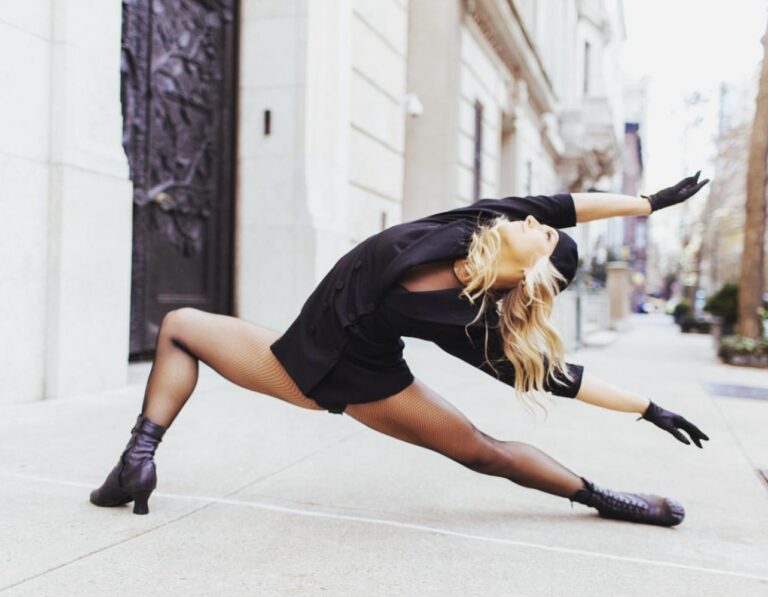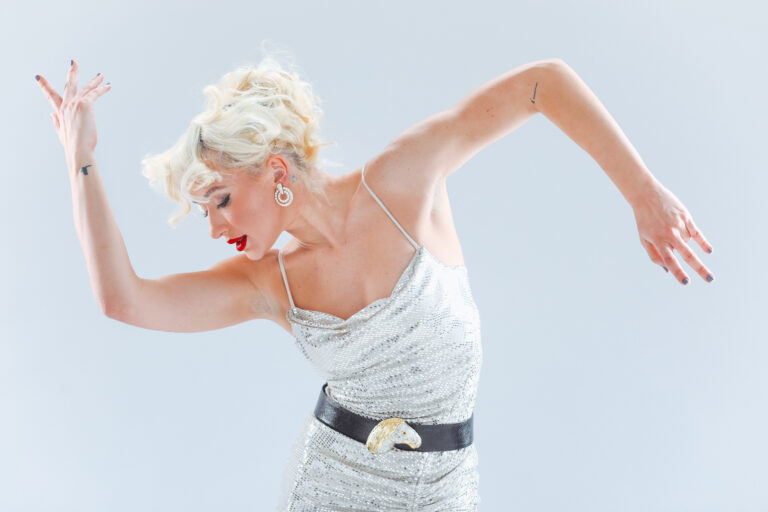
At 22 months old, Britini D’Angelo was diagnosed with autism—a developmental disability that can cause significant social, communication and behavioral challenges. When she was 5, her parents enrolled her in dance lessons at The Dance Shop Dance Studio in Niagara Falls, New York. In that setting, D’Angelo was able to escape the stigma associated with her diagnosis, and thrive. She trained in a variety of styles, including tap, jazz and ballet, and was the youngest dancer at the school to ever land a spot on the company team at just 12 years old. “They saw something in me early on, and it made all the difference,” D’Angelo says.
After graduating from high school, D’Angelo’s momentum continued, and she attended Niagara University, where she earned her BFA in the theater-performance program. It didn’t take long before she was working as a teaching artist for various classes at her school. Thus, her passion for teaching was born. After graduating college, she began teaching for the Missoula Children’s Theater, where she toured the country, taught workshops, and set full-length musicals on children in a different town each week.
When the pandemic hit, touring halted and D’Angelo had to recalibrate. She pivoted into teaching musical theater at Legacy Studio in Niagara Falls, and earned her master’s in teaching from Niagara University in the hopes of becoming a kindergarten teacher. But less than a month later, she decided to become a house guest on “Big Brother,” a CBS reality show in which a group of contestants live together in a specially constructed house that’s isolated from the outside world to compete for a cash prize. D’Angelo kept her diagnosis a secret throughout her time on the show. And although she didn’t win the show’s 23rd season, she announced her condition to the rest of the contestants during the season finale, saying, “I am so much more than what my disability is.”

Here, D’Angelo shares a bit about her experience dancing with autism, her advice for teaching students with autism, and her most influential teachers.
On dancing with autism “I was nonverbal until I was 3 1/2 years old, and dancing was one of the easiest ways to express how I was feeling at the time. I still believe it is one of my most effective forms of communication. My studio gave me a little extra bit of affirmation to let me know I was doing OK. If any issues came up, we kept communication crystal-clear between the teachers, my parents and myself. I was never held back. I was pushed beyond my self-doubt. My teachers would explain to me that they would never ask me to do something they didn’t think I was capable of. That was huge because with autism there is such an emphasis on the things you can’t do. I’m so grateful that I always felt validated in the studio.”
On teaching students with autism “In terms of teaching, there is a level of attentiveness that should increase with those with autism. My teachers had an extra eye out for me. I wasn’t always one to comply with rules, so teaching me, especially in the beginning, was not that easy. There were times where I was given a correction and I would think it was a personal dig at me, and they had to be patient with me and support me through that. For students with autism, improvisation can be a really effective tool. It’s helpful to have the freedom to move through space and mess up without judgment. Really, that’s an important tool for all dancers. Everyone should feel free to mess up, to not be perfect. We all need that constant affirmation that we are doing great.”
On her most influential teachers “Amy Roush and Terri Filips Vaughan are my two most influential teachers. I have worked with Amy throughout my entire life, and she has never once allowed me to become stagnant. Terri came into my life in college, and she was like a second mother to me. I always felt excitement when I had class with her because I knew I was about to learn something new. Even though my teachers knew I had autism, I was never treated as annoying, less than, different or difficult. I was given the encouragement that I was going to get this, and I wasn’t going to lose it.”




